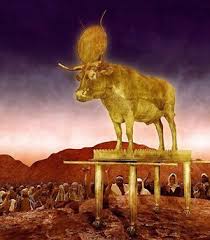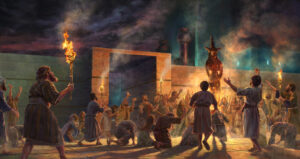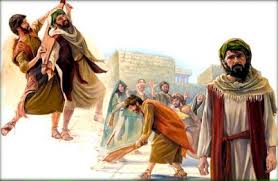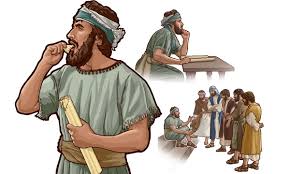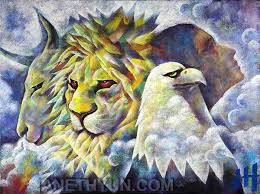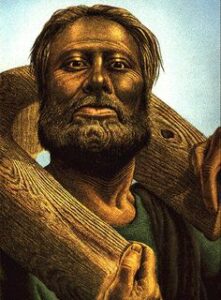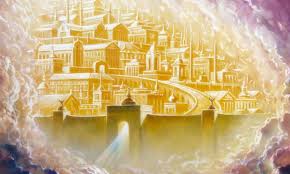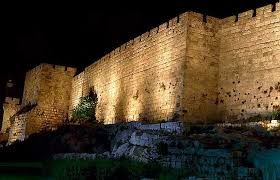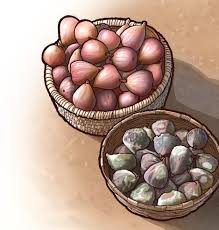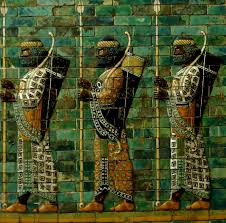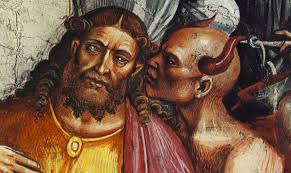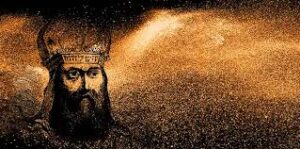Ew – Rebellious Isra’el Purged Ezeki’el 20: 1-32
Rebellious Isra’el Purged
Ezeki’el 20: 1-32
Rebellious Isra’el purged DIG: When the Israelites were in Egypt, how did God reveal Himself to them? How did they rebel? What was the result? Why didn’t ADONAI destroy them there? Why didn’t Ha’Shem destroy them in the wilderness? How did they treat Him? Why did God relent pouring out His wrath on them? Were the children of that wilderness generation any different than their parents? How did God treat them? Why? What does it mean that those who keep or obey God’s rulings will live (Exodus 19:6; Leviticus 18:2-5)? In practical terms, what does it mean to desecrate Shabbat (Ezeki’el 20:15-16, 23-24)?
REFLECT: Why do you think God is so concerned for His name or reputation? How is God’s name dragged through the mud every time His children rebel? If a later generation of believers only had stories of your experience with ADONAI to go by, would they say your life story enhances or detracts from God’s reputation? How so? Do you think ELOHIM minds as much now, as He did then, if we do not keep the Sabbath? Why?
The tenth of Ab, 591 BC during the seventh year of Zedekia’s reign
1. The setting: In the seventh year of Zedekiah’s reign, in the fifth month on the tenth day, less than a year after the Temple vision (to see link click Eu – Idolatry in the Temple), some of the elders of Isra’el came to inquire of the LORD, and they sat down in front of me (Ezeki’el 20:1). It was the exact same day that the Temple would be set on fire only five years later. An ominous coincidence! On the ninth day of Av, toward evening, after sundown, or the beginning of a new day, the Holy Temple was set on fire by Nebuchadnezzar and destroyed. The fire burned for twenty-four hours. That is why Jeremiah 52:12 says the tenth of Av.
This was the third time the elders of Isra’el had come to inquire of YHVH. They had asked for Ezekiel to prophesy in 8:1 and 14:1. But why had they come this time? In 591 BC Pharaoh Psammetichus II just had a great victory in the Sudan. And because of his victory, he was considering marching into Palestine to reclaim Egyptian sovereignty from the Babylonians. Zedekiah began thinking about rebelling against Babylon and becoming an ally with Egypt. More than likely, the questions that the elders of Isra’el came with were these. Will Egypt be victorious over Babylon as she was over the Sudan? What should Zedekiah do?
Then the word of ADONAI came to me. Not to answer those specific questions, but to point out their problem. As the word of God comes to him, Ezeki’el is going to review Isra’el’s past history to show how consistently the Jewish leadership and the people always disobeyed God. And the present situation will be no different. In Chapter 21 Ezeki’el will warn the Jews to prepare for the final judgment of Jerusalem by Nebuchadnezzar, bringing more exiles from Zion and in Chapter 24 he will conclude with a parable and two signs to illustrate the things he has been talking about.
Divine judgment: Son of man, speak to the elders of Isra’el and say to them, “This is what Adonai ELOHIM asks: Have you come to inquire of Me? As I live, says Adonai ELOHIM, I will not let you inquire of Me.” Instead, Ha’Shem will pass judgment on the elders and He asks Ezeki’el to voice these charges. Will you judge them? This is repeated again to make it emphatic. Will you judge them, son of man? Then God gave the prophet the theme for the entire section: Confront them with the detestable practices of their ancestors (Ezeki’el 20:2-4).287
Divine mercy: And say to them: This is what Adonai ELOHIM says: On the day I chose Isra’el (Deuteronomy 7:6-11), I swore with uplifted hand to the descendants of Jacob and revealed Myself to them in Egypt. With uplifted hand I said to them, “I am ADONAI your God” (Exodus 20:5).
God’s provision: On that day I swore to them that I would bring them out of Egypt into a Land I had searched out for them, a Land flowing with milk and honey, the most beautiful of all lands. And I said to them, “Each of you, get rid of the vile images you have set your eyes on, and do not defile yourselves with the idols of Egypt. I am the LORD your God who alone is to be worshiped” (Ezeki’el 20:6-7). The implication is that the Israelites followed some of the religious practices of their Egyptian neighbors (Leviticus 17:7; Joshua 24:14; Ezeki’el 23:3; Amos 5:25-27).
2. The people’s rebellion in Egypt: But they rebelled against Me and would not listen to Me; they did not get rid of the vile images they had set their eyes on nor did they forsake the idols of Egypt (Ezeki’el 20:8a). While the Israelites were in Egypt the pure faith inherited from the patriarchs was contaminated by the local pagan ideas and practices. The Israelites added false ideas such as this one recorded in the Midrash Rabba, Exodus IV, 3, the wicked among the Israelites perished and were buried during the plague of darkness, so that the Egyptians should not say that God had inflicted an epidemic on His people.
Divine judgment: So I said I would pour out My wrath on them and spend My anger against them in Egypt (Ezeki’el 20:8b). On the strict principle of justice, the Israelites should have perished in Egypt. Only for the sake of the honor of His name, did God spare and redeem them from bondage.
Divine mercy: But for the sake of My name, I brought them out of Egypt. I did it to keep My name from being profaned in the eyes of the [Gentile] nations among whom they lived and in whose sight I had revealed Myself to the Israelites (Ezeki’el 20:9). Ha’Shem did not carry through with His rightful judgment, however, for mercy triumphed over judgment. When ADONAI could find no basis in them for extending to them His mercy and grace, He did it solely for His name’s sake, that is, for His own glory.288
God’s provision in the wilderness: Therefore I led them out of Egypt (see the commentary on Exodus Ci – The Waters Were Divided and the Israelites Went Through the Sea on Dry Land) and brought them into the wilderness. I gave them My decrees and made known to them My rulings on Mt Sinai (see my commentary on Exodus Dh – Moses and the Torah), by which the person who obeys them will live (Ezeki’el 20:10-11). Obedience to the divine decrees, both those relating to the duties of mankind towards ADONAI and also those dealing with other people, was supposed to lead to social and national happiness and stability (see the commentary on Exodus Da – The Dispensation of the Torah). But today (see the commentary on Hebrews Bp – The Dispensation of Grace), the Torah continues to provide a blueprint for living a righteous life (Romans 3:20 and 28).
Also I gave them My Sabbaths as a sign between us (Exodus 31:17). The purpose was so they would know that I, ADONAI, am the one who makes them holy (Ezeki’el 20:12). Shabbat was more than a day of rest. Its observance by the Israelites was a consistent acknowledgement of YHVH as the Creator of the universe. The plural Sabbaths includes festivals that are given in the Torah (Leviticus 23:24 and 39).
While not all covenants carried with them a physical sign, some did. For example the sign of God’s covenant with Noah is the rainbow (see the commentary on Genesis Da – Never Again Will There Be a Flood to Destroy the Earth). The sign of YHVH’s covenant with Abraham was circumcision (see the commentary on Genesis El – God’s Covenant of Circumcision with Abraham). The sign of ADONAI’s covenant with Moshe was the Sabbath (see the commentary on Exodus Dn – Remember the Sabbath by Keeping It Holy). Of the Ten Commandments, only nine are found in the B’rit Chadashah. The one missing is the Sabbath because the commandments of Moses is no longer in effect, therefore the sign is no longer in effect. That’s why there is no obligation to keep Shabbat today.289
3. The rebellion of the first generation in the wilderness: Yet the people of Isra’el rebelled against Me in the wilderness. During their wilderness wanderings they worshiped the golden calf (see the commentary on Exodus Gq – The Golden Calf Incident), left manna until morning (see the commentary on Exodus Cs – That Evening Quail Came and Covered the Camp), tested God at Rephidim (see the commentary on Exodus Cu – Strike the Rock and Water Will Come Out of It), and committed other acts of disobedience (Number 11-16; Psalm 106:13-27). They did not follow My decrees but rejected My rulings of the Torah – by which the person who obeys them will live – and they utterly desecrated My Sabbaths (Exodus 16:27-30; Numbers 15:32-36).
Divine judgment: The tragic account of rebellion continued, so YHVH said He would pour out His wrath on them and destroy them in the wilderness (Ezeki’el 20:13).
Divine mercy: But for the sake of My name I did what would keep it from being profaned in the [Gentile] nations in whose sight I had brought them out (Numbers 14:11-19; Deuteronomy 1:26-33). Yet with divine mercy there was divine discipline. YHVH said: With uplifted hand I swore to them in the wilderness that I would not bring them into the Land I had given them – a Land flowing with milk and honey, the most beautiful of all lands – because they rejected My rulings, and did not live by My rulings and desecrated My Sabbaths (Numbers 14:20-35; Deuteronomy 1:34-35). The root cause for God’s discipline was that the hearts of the generation that came out of Egypt were devoted to their idols (Ezeki’el 20:15-16).
God’s provision for the first generation in the wilderness: However, I spared them from complete destruction; I did not completely finish them off in the wilderness (Ezeki’el 20:17 CJB). Even though the generation that left Egypt perished in the wilderness, their children entered the Promised Land.290
4. The rebellion of the second generation in the wilderness: I said to their children, the generation that was born in the wilderness, “Do not follow the practices that your fathers had adopted while living in Egypt or defile yourselves with their idols. I am ADONAI your God; live by My laws, observe my rulings, and obey them, and keep My sabbaths holy; and they will be a sign between Me and you, so that you will know that I am ADONAI your God. The younger generation was not only exhorted to avoid the sins of their fathers, but to accept the way of God as that alone in which they should walk, if they were to enjoy a secure national experience. But sin for sin their children were photocopies of their fathers, and they too rebelled against Me by worshiping Ba’al at Peor (Numbers 25:1-9; Psalm 106:28-33). They did not live by My statutes or observe My rulings, to obey them, which, if a person does, he or she will have life by them; and they profaned My Shabbats. (Ezeki’el 20:18-21a).
Divine judgment: Then I said I would pour out My fury on them and spend My anger on them in the wilderness (Ezeki’el 20:21b CJB).
Divine mercy: Nevertheless, I withdrew My hand and allowed concern for My reputation to keep Me from letting it be profaned in the sight of the [Gentile] nations who had seen when I brought them out. Yet with divine mercy there was divine discipline. Also with uplifted hand I swore to them in the wilderness that I would disperse them among the [Gentile] nations and scatter them through the countries, because they had not obeyed My rulings but had rejected My statutes and profaned My Shabbats, and their eyes had turned toward their fathers’ idols (Ezeki’el 20:22-24 CJB). All such threats were conditional, and the meaning is that the wicked spirit that was seen in the wilderness, if continued when the nation was established in the Land, would lead to captivity and dispersion. However, the second generation was clearly warned of the possibility of a worldwide dispersion (Leviticus 26, Deuteronomy 28-30; Ps 106:26-27).
The provision for the second generation in the wilderness: I also gave them statutes that did them no good because of the people’s stubborn hearts that choose to follow their own devices rather than the statues of God. The point here is that YHVH gave Isra’el over to perverse ways and to follow the statutes of the Gentile nations around them. This would ultimately bring on their demise and they would see the wisdom in God’s ways (Psalm 81:12; Isaiah 63:17; Ezeki’el 20:39). And I let them become defiled by going their own way – the sacrifice of every firstborn. Ha’Shem had ordained that the firstborn should be consecrated to Him (see the commentary on Exodus Cd – Consecrate To Me Every Firstborn Male). But they rejected this decree (Leviticus 18:21; Deuteronomy 18:10), so God allowed them to turn an act of consecration into an act of pollution when they sacrificed their own children to Molech. The result was that God might fill them with horror so they would know that He is God (Ezk 20:25-26 CJB).291
5. Rebellion in the promised land: In addition to their wickedness in Egypt and the wilderness, they continued their sinning when they were in the Promised Land. Therefore, son of man, speak to the people of Isra’el and say to them, “This is what Adonai ELOHIM says: Moreover, your ancestors blasphemed Me by breaking faith with Me in still another way. The word blasphemed signifies committing a cardinal sin and is interpreted in the Talmud as idolatry (Kerith. 7b). For after I had brought them into the Land, which I had raised My hand in pledge to give them, they noted all its high hills and leafy trees and offered their sacrifices there. Upon entering the Promised Land, they adopted the forms of worship practiced by the Canaanites. They made offerings that provoked My anger, there they set out sweet aromas, incense burnt upon an altar for the worship of an idol, and there they poured out their drink offerings. When I asked them, “What is this high place you go to?” They gave it the name Bamah (Ezeki’el 20:27-29). This is a play on words in the Hebrew text. Ezeki’el apparently gives the word bamah, meaning high place, a contemptuous origin that comes from the Hebrew root words ba (go) and mah (what). And it was still called Bamah in Ezeki’el’s day.
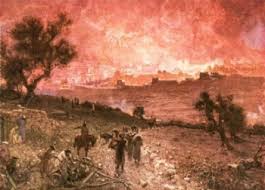
Divine judgment: ADONAI now deals with the present generation and completes the reasoning that began in Ezekiel 20:1-4 by asking certain accusing questions. Therefore, say to the elders of Isra’el, “This is what Adonai ELOHIM says: Will you defile yourselves the way your ancestors did and lust after their vile images? The Hebrew requires a positive response. When you offer your gifts – the sacrifice of your children in the fire – you continue to defile yourselves with all your idols to this day. Again the answer is yes. Such defilement created a barrier between them and God, which made it impossible for them to understand YHVH and His message through the prophet for their future. Am I to let you inquire of Me, you Israelites? No. As surely as I live, declares Adonai ELOHIM, I will not let you inquire of Me (Ezeki’el 20:30-31).
“You say, ‘We want to be like the Goyim, like the families of the other countries, serving wood and stone.’ But what you have in mind will never happen, you cannot be like the Gentiles” (Ezeki’el 20:32). God may permit other countries to worship wood and stone, but He has a covenant relationship with Isra’el. So when Isra’el does this she will be under divine judgment, the judgment of an adulteress.292
The LORD’s mercy and provision for Isra’el will come to an end because of their stubborn, unrepentant hearts continuing to sin, and this will result in the fall of Jerusalem and the exile to Babylon.



